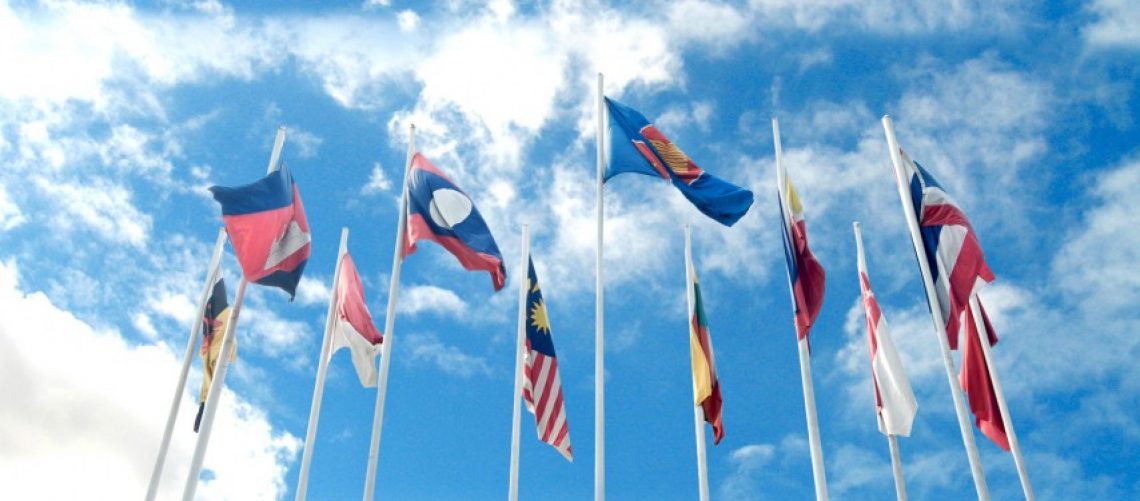JAKARTA, 21 November 2013 – In line with the targets of ASEAN Economic Community 2015, Member States have intensified efforts to facilitate and reduce barriers for intra-ASEAN trade in processed food sector while also protecting consumers in the region. In a meeting held 18-20 November in Jakarta, ASEAN Member States developed recommendations to expedite the development of Mutual Recognition Arrangement (MRA) for the prepared foodstuff sector.
Representatives from Member States who make up the ASEAN Consultative Committee on Standards and Quality Prepared Foodstuff Product Working Group (PFPWG) and from relevant ASEAN groups on health and agriculture discussed issues around regulatory system and conformity assessment procedures required for stimulating the internal market for prepared foodstuff while protecting consumers. There were also discussions on food trade in ASEAN as well as concerns and expectations of ASEAN industry, including the SME sector.
Speakers from the European Union’s Directorate-General on Health and Consumers and the ASEAN Food and Beverage Alliance shared their insights with participants. European experts shared the experience in the European Union in removing trade barriers while ensuring food safety for the consumers. These presentations provided participants with an overview from an industry perspective and the available tools for an MRA. The workshop also provided an opportunity for key persons responsible for food safety in ASEAN Member States to share information and experiences regarding food safety.
The meeting concluded with a set of recommendations for PFPWG on the approach, institutional arrangements, and scope of the MRA, as well as short and long term priorities in trade barrier reduction/removal for prepared foodstuff sector. Further, the participants reached a common understanding on MRA concept and mechanism for prepared foodstuff and how this is operationalized in each Member State.
The workshop was organised by the ASEAN Regional Integration Support from the EU (ARISE) Technical Assistance Programme and supported by the ASEAN Secretariat and the PFPWG.
- ABOUT ASEANThe Association of Southeast Asian Nations, or ASEAN, was established on 8 August 1967 in Bangkok, Thailand, with the signing of the ASEAN Declaration (Bangkok Declaration) by the Founding Fathers of ASEAN: Indonesia, Malaysia, Philippines, Singapore and Thailand. Brunei Darussalam joined ASEAN on 7 January 1984, followed by Viet Nam on 28 July 1995, Lao PDR and Myanmar on 23 July 1997, and Cambodia on 30 April 1999, making up what is today the ten Member States of ASEAN.Menu
- WHAT WE DO
ASEAN organs always strive to achieve ASEAN’s goals and objectives, the Secretary-General of ASEAN and the ASEAN Secretariat shall be functioned as coordinating Secretariat to help facilitate effective decision-making withing and amongst ASEAN bodies. In addition, each Member State shall appoint a Permanent Representative to liaise with Secretary-General of ASEAN and the ASEAN Secretariat
Menu - WHO WE WORK WITH
ASEAN shall develop friendly relations and mutually beneficial dialogues, cooperation and partnerships with countries and sub-regional, regional and international organisations and institutions. This includes external partners, ASEAN entities, human rights bodies, non-ASEAN Member States Ambassadors to ASEAN, ASEAN committees in third countries and international organisations, as well as international / regional organisations.
Menu - OUR COMMUNITIES
The rodmap for an ASEAN Community (2009-2015) was declared by the leaders in 2009. The ASEAN Community, anchored on three community pillars: Political-Security Community, Economic Community, Socio-Cultural Community was launched in 2015. The ASEAN 2025: Forging Ahead Together was introduced in 2015 as a Post-2015 Vision. It comprises the ASEAN Community Vision 2025, the ASEAN Political-Security Community Blueprint 2025, the ASEAN Economic Community Blueprint 2025 and the ASEAN Socio-Cultural Community Blueprint 2025
Menu - SITEMAP





